Fall updates to benefits, policies and procedures
Your response needed: Take the Provider Appointment Availability Survey (PAAS)!
Thank you to all providers who have already taken the PAAS. If you haven’t completed the survey yet, watch for an email or phone call in November. For more details, please see Issue 32 of the Provider Digest.
Catch up on October and November All Plan Letter updates
Please review the following All Plan Letters (APLs) for updates on Alliance benefits, policies and procedures. For more information, including a summary of relevant provider takeaways, visit the All Plan Letters page on our website.
You can also contact Alliance Provider Relations at 800-700-3874, ext. 5504.
| APL | Topic | Related Alliance policies |
| APL 23-004 | Skilled Nursing Facilities – Long-Term Care Benefit Standardization and Transition of Members to Managed Care |
|
| APL 23-022 | Continuity of Care for Medi-Cal Beneficiaries Who Newly Enroll in Medi-Cal Managed Care from Medi-Cal Fee-For-Service, On or After January 1, 2023 | |
| APL 23-023 | Intermediate Care Facilities for Individuals with Developments Disabilities – Long Term Care Benefit Standardization and Transition of Members to Managed Care |
|
| APL 23-024 | Doula Services | |
| APL 23-025 | Diversity, Equity, And Inclusion Training Program Requirements | |
| APL 23-027 | Subacute Care Facilities – Long Term Care Benefit Standardization and Transition of Members to Managed Care |
|
| APL 23-019 | Proposition 56 Directed Payments for Physician Services |
Other important updates include Federal Rule 103 and DMHC APL 22-031. Read more about those items below.
Federal Rule 103 – CAA Section 103
- Topic: Determination of out-of-network rates to be paid by health plans; Independent dispute resolution (IDR) process
- Related Alliance policies: 600-1017-Provider Inquiry and Dispute Resolution
- Effective July 1, 2022, the Alliance will provide a 30-day open negotiation period for providers and issuers to settle out-of-network claims.
- If parties are unable to reach a negotiated agreement during the 2-day period following the close of open negotiation, they may access a binding “baseball style” arbitration process – referred to as Independent Dispute Resolution (IDR) – in which one offer prevails.
- Reimbursement for out-of-network services may be determined in one of several ways.
- The legislation defers to state law or policy if applicable.
- If no such policy applies, then the legislation defines the process through which reimbursement is determined.
- First, the provider may accept the initial payment made by the plan.
- Second, the health plan and provider may come to a mutually agreeable amount through routine negotiating procedures during a 30-day period beginning the day the provider receives the initial payment (or payment denial) from the plan.
- Finally, should either fail, the parties may bring an outstanding dispute to an IDR process established under this section of the law.
- The parties can continue to negotiate during the IDR process and do not need to complete it if they can agree to reimbursement during this period.
- Topic: Newly Enacted Statutes Impacting Health Plans (2022 Legislative Session)
Please review this APL from the Department of Managed Health Care (DMHC) that lists multiple statutes that impact health plans and our partners.


